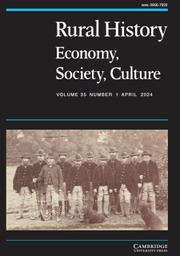Alistair Dougall tells us that ‘theologians had criticised popular culture since the earliest days of the Church’, and it is tempting to see complaints against popular recreation in Tudor and Stuart England as part of a timeless cacophony of opprobrium directed at the leisure activities of the masses, echoing unchangingly through the ages. Yet in this study Dougall shows that subtle shifts of emphasis in the arguments deployed by the enemies of popular recreation, and in particular of Sabbath day recreation, need to be carefully charted and historicised. Whilst demonstrating that both Church and State upheld concerns about the proper observance of the Christian Sabbath throughout the Middle Ages and early modern period, Dougall reconstructs their varying stances on precisely what that meant: was it just unlawful recreations that were not permitted on the Sabbath, or was it all forms of recreation? Were recreations only to be refrained from during the time of divine service, or for the entire day? Were concerns about Sunday revelry underpinned by a spiritual agenda, or a more secular concern with social order? The crucial development is identified as taking place in the 1580s and 1590s, when a certain degree of tolerance of Sunday recreations, providing that they did not interfere with divine service or take place in the churchyard, began to be challenged for the first time by a new hard line ‘puritan sabbatarianism’ that sought to outlaw any form of recreation on the ‘Lord's Day’. As the seventeenth century progressed, opinion began to polarise between the more permissive traditional attitude, and what was for Dougall this much stricter and more novel position.
The notion of a cultural division within early Stuart society pitting an innovative puritanism against adherents of a traditional ‘Merry England’ is a familiar story, explored by the likes of David Underdown and Ronald Hutton, and Dougall draws heavily upon such existing works in the field. The study is billed as the first large-scale work devoted to the Book of Sports for over a century, a claim that perhaps does a disservice to its scope. The central subject is really more impressive than this, representing a study of sabbatarianism in Tudor and early Stuart England, for which a rival monograph has appeared much more recently: Kenneth Parker's The English Sabbath. A Study of Doctrine and Discipline from the Reformation to the Civil War (Cambridge, 1988). Dougall engages closely with this work, and indeed his central thesis is an attempt to overturn Parker's conclusion that the publication of the Book of Sports represented a ‘Laudian innovation’ that ran counter to a centuries old sabbatarianism that was religiously mainstream. For Dougall, it was the hard line puritans of the late sixteenth century that broke with tradition, an argument that is convincingly made here.
Scholars already familiar with the period may question what is fresh about the perspective Dougall brings to this study. Granted, the choice of Somerset and Lancashire, the core battle grounds for control of the Sabbath, as case studies makes sense, but perhaps the addition of a less well-trodden area could have provided a new angle, and the historian of popular culture might be disappointed that there was not a greater determination to overcome the familiar complaints about the problems of trying to write history ‘from below’, especially given the subject matter. That said, the book offers a thorough and cogent story of the development of English sabbatarianism, and students seeking to understand the complex political, religious and cultural history of these years will appreciate the admirable blend of subtlety and clarity that Dougall achieves.


